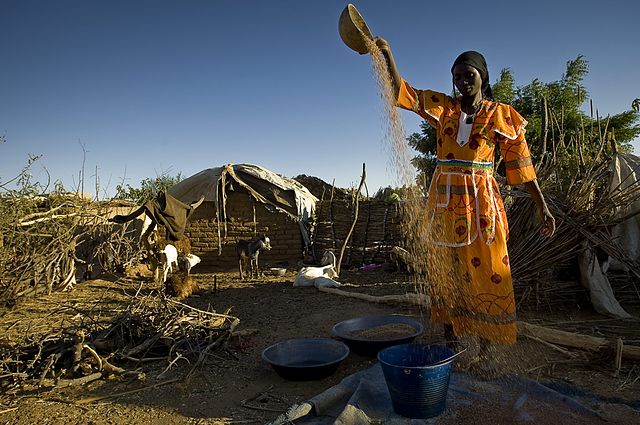How will Chad get humanitarian aid?

A refugee from the Darfur region of Sudan, pictured here in Chad, 2011.
Jonah Carlson - Earlier this month, conflict in the capital of Sudan between two warring generals sparked violence that has since spread across the country. The fighting has encouraged many individuals to cross international boundaries for protection, including individuals in the West Darfur region, which borders Chad. Elian Peltier with The New York Times explores the repercussions of the emerging war on international affairs through the lens of displacement and immigration.
To understand the issue at hand, it’s important to understand boundaries. Boundaries are the lines that divide two territories – in this case, the sovereign and administrative boundaries of two states, Sudan and Chad. Such boundaries often play a decisive role in citizenship, tax collection and allocation. Boundaries are also security concerns, encouraging states to monitor the flow of goods, services, and people across them. With thousands of refugees crossing the border from Sudan to Chad through West Darfur, Peltier notes that the humanitarian crisis occurring in Chad could worsen. The new war is only the latest in a series of violent moments in West Darfur that have encouraged flight from Sudan to Chad. However, without ample humanitarian resources, Peltier predicts that many will be left without the essentials for survival. The humanitarian crises of both Chad and Sudan may be amplified by the dwindling international presence in both countries, the product of warfare in the Sudanese capital of Khartoum. Combined with the rural, relatively isolated nature of West Darfur and eastern Chad, international organizations such as the UN may face difficulty in supplying the region with ample aid.
Another element one must consider is relational power. Despite the awareness of a growing humanitarian crisis in Sudan and the surrounding region, powerful countries may feel unincentivized to provide funding due to the relatively low salience of the region in international relations. Rather, focus may be put on regions that are expected to have a greater effect on relational power, whether that be the front in Ukraine or to growing geopolitical competition in East Asia.
Photo source. European Commission DG ECHO, CC BY-SA 2.0, via Wikimedia Commons.

